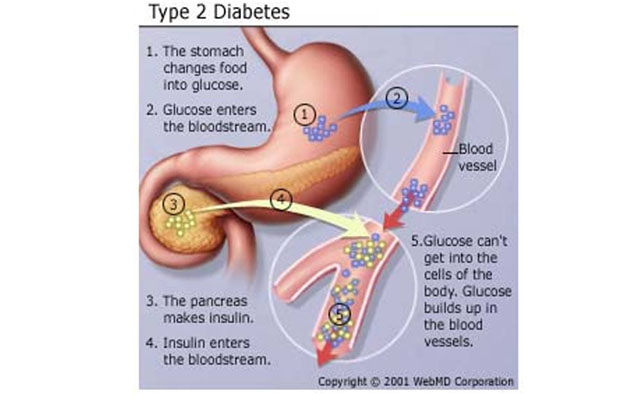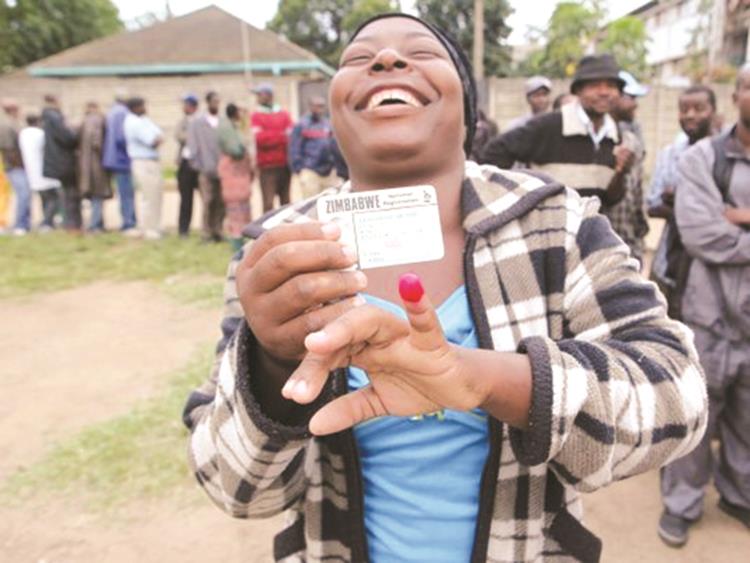Diabetes education pays off

Charity Ruzvidzo
For Ms Melanie Mavhume (33) of Harare, being diabetic has not only brought pain and misery, but peeled her eyes too.
She now knows for certain that being reckless about the types of food one consumes can be dangerous to health.
“I was diagnosed with diabetes four years ago,” she said.
“I am required to watch my diet and ensure that I take my medication. Most people are living sedentary lifestyles and they do not exercise.
“This is a big problem, especially if one is not active and does not exercise. I have learnt a lot from health campaigns. I now exercise a lot and its helping me cope with my condition.”
Health experts say diabetes is a lifelong condition that causes a person’s blood sugar level to become too high, which if left untreated, can lead to severe complications such as heart disease, stroke, sight damage and kidney failure.
The disease requires one to consistently take medications, to ensure it is managed.
“The most important aspects of managing Type 2 diabetes are diet, weight control and physical activity,” said Ms Mavhume from the knowledge she has since acquired in her effort to manage the disease.
“If your blood sugar remains high even after trying to change your lifestyle, you are given tablets and insulin.”
Frequent medical check-ups are now the order of her life.
Having spent four years with diabetes, Ms Mavhume said it was pivotal to be able to detect the symptoms at an early stage.
“There is need to teach children about diabetes and its dangers since they are also affected by the disease,” she said.
“At community level, there must be peer educators to teach people about the symptoms of the disease in order to save more lives. I listen a lot about diabetes on radio and follow public campaigns with interest.”
Ms Mavhume said the economic difficulties being experienced in the country were a contributing factor to the unhealthy food choices made by most people.
The economic problems are mainly blamed on illegal sanctions imposed on Zimbabwe by Western countries who were angered by the land reform undertaken by Government to distribute the crucial resource equally.
“Although diabetes has been linked to increased prosperity, the situation is different here in Zimbabwe,” said Ms Mavhume.
“You find that people do not have enough income and are forced to eat cheap and sub-standard processed foods, which are even worse.”
Ms Mavhume’s story is one of a survivor whose fight against diabetes is being won through adopting a healthy lifestyle and taking medication consistently.
But for Bope Mukungatu (36) diabetes almost cost her life and that of her unborn child.
Ms Mukungatu is a Type 2 diabetes patient who was diagnosed with the disease in 2010.
“When I was pregnant with my second child, I faced many challenges,” she said.
“I would sweat endlessly and urinate for more than 20 times a day. I failed to have a normal delivery and soon after giving birth I was diagnosed with diabetes.”
She was immediately put on drugs to cope with her condition.
Her diabetes was hereditary.
“The doctors looked at my history and found out that most of my family members were diabetic and some had passed away due to the disease,” said Ms Mukungatu.
“It is very important to go and get checked if there is a history of diabetes in your family.”
Ms Mukungatu encouraged those affected with diabetes to take advice from health professionals and not any other quarters.
“I personally refused to acknowledge that I had diabetes,” she said.
“I told myself Jesus heals and I believed in a miracle.
“This, however, has not happened up to date.
“People must take sound advice from health professionals. It pays to listen. People who suffer from diabetes must desist from taking false advice.”
According to the Zimbabwe Diabetes Association president Mr John Mangwiro, 10 percent of the country’s population is affected by diabetes.
“It is true that unmanaged diabetes and other non-communicable diseases are killing more people than HIV,” he said. “In Zimbabwe, 10 percent of the population is affected by diabetes, this translates to an estimated 1,5 million people and 95 percent of that is Type 2.
“This is for diabetes alone, the number would increase if we include all non-communicable diseases.”
Mr Mangwiro said diabetes, if not properly monitored, may lead to strokes, heart attacks, kidney failures and lower limb amputations, which later causes death.
“It is pivotal for people to change their lifestyles and watch the food they eat,” he said. “Many people are dying due to heart attacks caused by diabetes.”
Mr Mangwiro said his organisation, which recently held training for health professionals in the country on diabetes trends and treatment, was driving for diabetes prevention and awareness.
“In partnership with Novartis, we have taken a step towards raising awareness and training health professionals about diabetes,” he said. “Many people are now aware of what to do in order to prevent HIV. We are also going to have more projects to sensitise people on diabetes.”
Health experts say it is pivotal for people to have an eating plan that is low in fat and starchy carbohydrates – like bread, potatoes and white rice – but rich in protein and nutrients found in vegetables, certain fruits and whole grains.
People with high blood sugar will typically experience frequent urination, tiredness, excessive thirst and frequent bouts of hunger.
Health experts say the main causes for the dramatic rise in diabetes in Africa are urbanisation and obesity.
Zimbabwe has staged rigorous campaigns to educate the public about diabetes.
Despite this, health experts say there is need to continue carrying out education campaigns to reach to all people, a Government official said.
Millions of people are migrating from rural to urban areas in pursuit of work and better opportunities.
In a short time, their lifestyles change dramatically: they adopt a westernised diet high in fat, sugar and salt and get far less exercise than they were used to.
At least 210 000 people have been diagnosed of diabetes in Zimbabwe in 2015, reports the International Diabetes Federation.
According to the report, 209 800 new cases of diabetes have been diagnosed and another 149 700 undiagnosed cases have been estimated for the year 2015.
The number of adults worldwide affected by diabetes has grown four-fold since 1980 to 422 million, according to the latest World Health Organisation report.
The UN agency says nearly one in 11 people are now affected by the disease, with obesity and unhealthy eating included in the factors driving the rise.
Africa has the highest percentage at 66,7 percent of undiagnosed people, who are at higher risk of developing harmful and costly complications.
According to WHO, diabetes caused 321,000 deaths in 2015 and 79 percent of those deaths were people under the age of 60, which was the highest percentage across regions.
Cancer, which is also another major non-communicable disease, killed about 8,2 million people in 2012 worldwide, according to a 2015 WHO report. – Zimpapers Syndication.










Comments